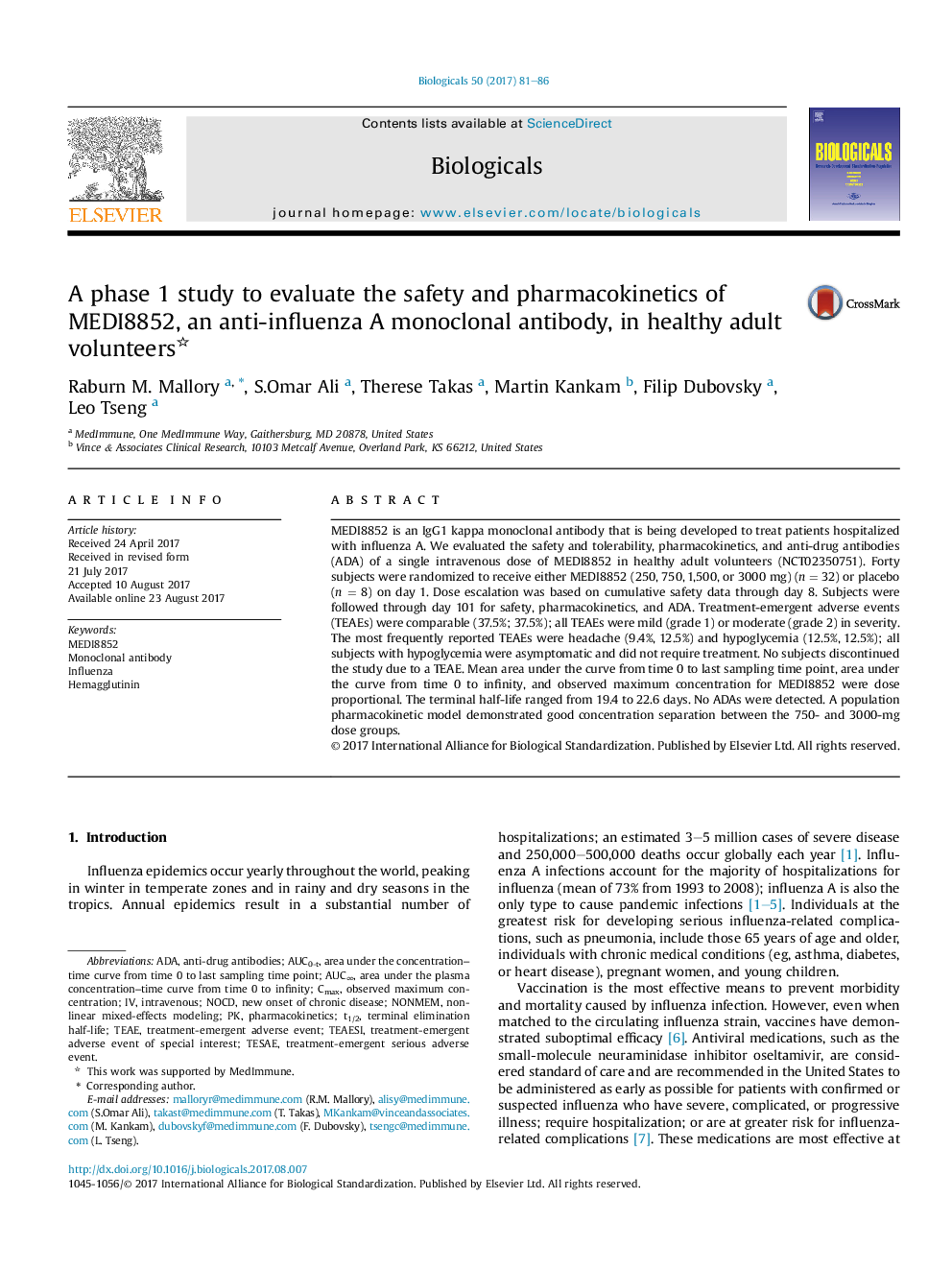| Article ID | Journal | Published Year | Pages | File Type |
|---|---|---|---|---|
| 8369192 | Biologicals | 2017 | 6 Pages |
Abstract
MEDI8852 is an IgG1 kappa monoclonal antibody that is being developed to treat patients hospitalized with influenza A. We evaluated the safety and tolerability, pharmacokinetics, and anti-drug antibodies (ADA) of a single intravenous dose of MEDI8852 in healthy adult volunteers (NCT02350751). Forty subjects were randomized to receive either MEDI8852 (250, 750, 1,500, or 3000 mg) (n = 32) or placebo (n = 8) on day 1. Dose escalation was based on cumulative safety data through day 8. Subjects were followed through day 101 for safety, pharmacokinetics, and ADA. Treatment-emergent adverse events (TEAEs) were comparable (37.5%; 37.5%); all TEAEs were mild (grade 1) or moderate (grade 2) in severity. The most frequently reported TEAEs were headache (9.4%, 12.5%) and hypoglycemia (12.5%, 12.5%); all subjects with hypoglycemia were asymptomatic and did not require treatment. No subjects discontinued the study due to a TEAE. Mean area under the curve from time 0 to last sampling time point, area under the curve from time 0 to infinity, and observed maximum concentration for MEDI8852 were dose proportional. The terminal half-life ranged from 19.4 to 22.6 days. No ADAs were detected. A population pharmacokinetic model demonstrated good concentration separation between the 750- and 3000-mg dose groups.
Keywords
Related Topics
Life Sciences
Biochemistry, Genetics and Molecular Biology
Biochemistry, Genetics and Molecular Biology (General)
Authors
Raburn M. Mallory, S.Omar Ali, Therese Takas, Martin Kankam, Filip Dubovsky, Leo Tseng,
